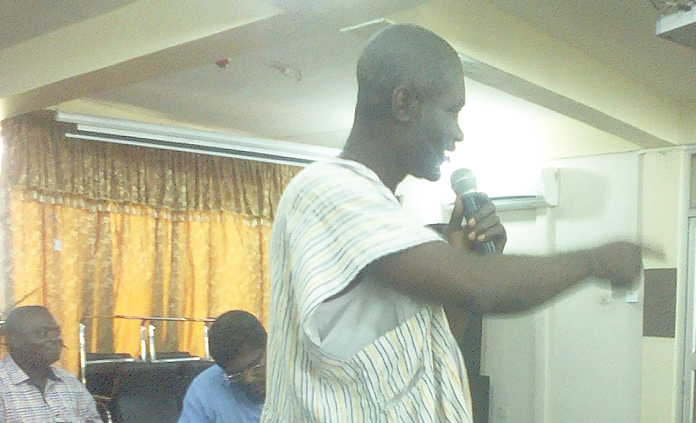
‘Use right channels to resolve grievances’
The director of programmes of the National Peace Council, Mr George Amoh, has urged Ghanaians to use the right channels to resolve grievances.
If dialogue, mediation and the right institutions are used to resolve issues, there will be peace before, during and after this year’s election, he stated.
Though conflict is inevitable in every country, Mr Amoh said, Ghana had several mechanisms in resolving conflicts, and, therefore, if any political party found any conflicting issues, they should use negotiation and other non-violent ways of addressing their grievances, rather than using violent means.
He stated this when the National Commission for Civic Education (NCCE), in partnership with the National Peace Council (NPC), organised a seminar for members of various political parties in the Ga South municipality to promote peace during this year’s polls slated for December 7, 2016.
“If we go to conflict-prone countries such as Liberia and Sierra Leone, there we would know the value of peace,” he said.
Mr Amoh advised political parties representatives who appear on media platforms to be mindful of their language and utterances in order to bring peace.
He also urged individuals to have confidence and trust in the institutions in Ghana, including Electoral Commission (EC), the Judiciary, the security services and the NPC, “because if you decide to destroy them today, tomorrow the institutions will not be there for you to use them.”
“It is our collective responsibility to respect the institutions in Ghana,” he added.
Voting is your right
The Municipal Director for the NCCE (Ga South), Mr Ben Tetteh, educated participants on governance, saying elections are one of key instruments in democracy.
“It is our responsibility to empower the citizenry to participate in democracy; therefore, there should be a need to know why you are voting for a political party but not to vote just for fun,” he said.
“The power of governance rests with the citizenry and that is why everyone’s vote is important, including the President. The transition of leadership will be smoothly done if institutions foster national unity and harmony,” he added.
Electoral process
The District Electoral Officer for Ga South, Kwabena Apea Ayeh, took participants through basic education as well as information on the election. He told them that on the day of election, the necessary electoral equipment would be ready by 6 a.m. and voting will end at 5 p.m., but if there are a lot of people in a queue, counting would be done to the last person to close voting.
The District Officer mentioned Notice of polls, which is the arrangement done on the ballot papers to educate the public on how their candidates are on the ballot papers on the day of voting, would be printed a few weeks to the election to educate the populace.
“The electorate should bring their voters ID card on the day of election, but if voters cannot find the ID cards, they can still vote,” he added.
Mr Ayeh also educated them on rejected ballots and how to prevent the ballot being rejected by the presiding officer.
According to him, polling station agents can seek redress if they think the counting was not done well, but should give concrete reasons before it would be done.
“Per the constitution, presidential candidate would win by 50+1 votes, “he said.
In an interview with Daily Graphic, Mr Mawayraw E. K. Asai, a participant, said the programme had been really helpful and he wished it had been done at a public place, so that people would get to know more in order to use non-violent means to address their grievances.
